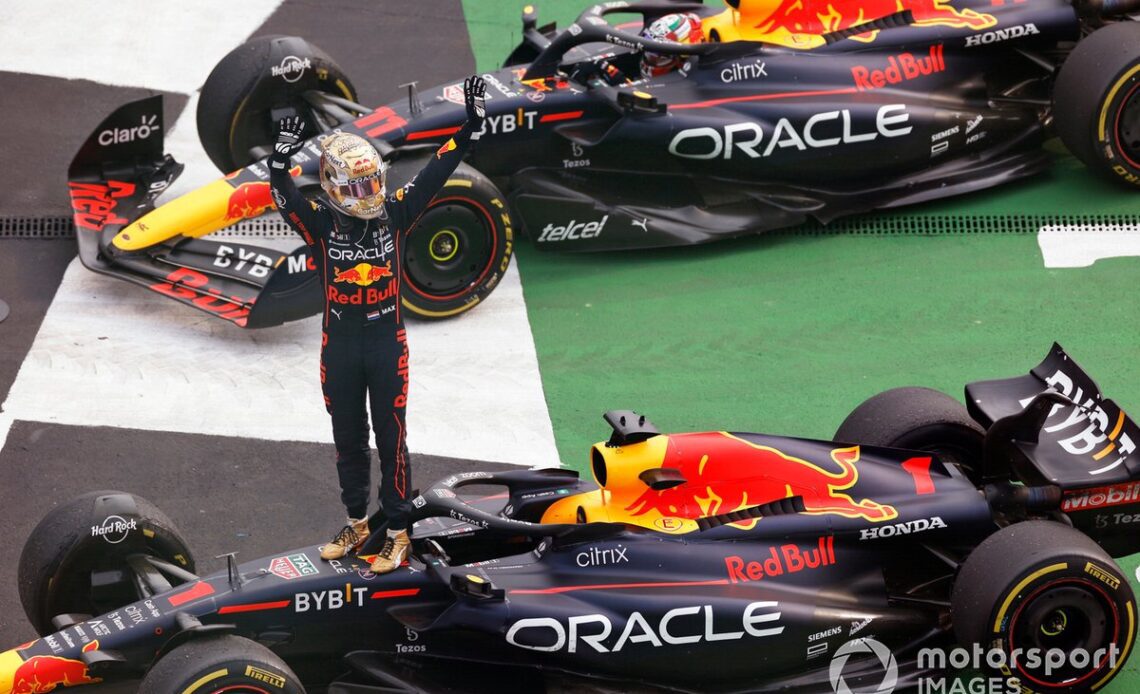Max Verstappen’s Formula 1 career has been littered with record after record, most of which have been related to his age: youngest this, youngest that.
But by claiming the record for the most victories in a single season with his 14th win of the year in Mexico last weekend, Verstappen offered another reminder – if there were ever any doubt – that his name will stand the test of time in F1’s record books for more than age alone.
The previous benchmark of 13 wins, set by Michael Schumacher in 2004 and Sebastian Vettel in 2013, started to come into view for Verstappen over the summer. As Ferrari’s hopes faded and his win tally continue to grow, the prospect of a record-breaking path to the championship started to be discussed.
Not by Verstappen, though, at least publicly. He always claimed, unlike some of his rivals, that stats held little interest to him, as well as pointing out the fact that now with more races, such records were easier to reach. “I don’t think he cares,” Red Bull team principal Christian Horner said after Verstappen’s 10th win of the year at Zandvoort. “He just doesn’t look at things like that.”
Autosport asked Verstappen after his 14th win whether his downplaying of the record earlier this year was a tactic to avoid losing focus, but he said he was just “never really interested in stats.” He also noted that a lot in F1 “depends on your whole package.”
So how does Verstappen’s 14-win season – which, of course, could go as high as 16 with two races to spare – compare to what Schumacher and Vettel achieved in their record-breaking seasons? And what does Verstappen need to do to make this the most dominant title win in F1 history?
Max Verstappen, Red Bull Racing, 1st position, celebrates on arrival in Parc Ferme
Photo by: Steven Tee / Motorsport Images
The bigger calendar
One factor that is likely to skew many of F1’s existing records is the rapid expansion of the calendar that make feats such as Verstappen’s 14 wins easier to reach. The same rings true for the all-time wins list, which Verstappen already sits sixth on.
Through a 22-race campaign, you’d need only be perfect on just over two-thirds of the season to reach the landmark. By comparison, Schumacher’s 13 wins came in just 18 races in 2004, while Vettel hit the same number over a 19-round season.
Yet when you put a percentage on it, Verstappen still – currently – compares well. A strike rate of 14 wins in 20 races is 70%, 1.58% clear…
Click Here to Read the Full Original Article at Autosport.com – Formula 1 – Stories…

